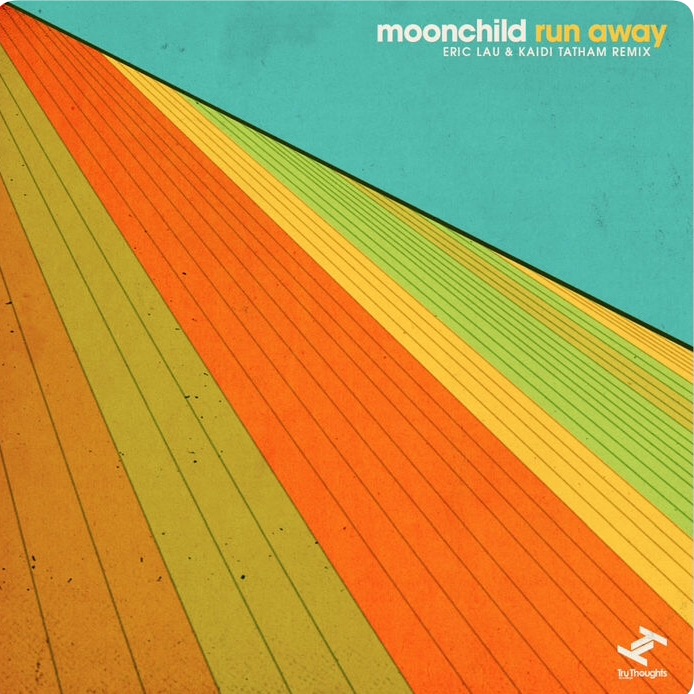Tag: music
Dragon Ball Super; Blizzard by Daichi Miura
Here’s a promo music video for Dragon Ball Super: Broly!
J-Dilla Crate Diggers Documentary
I’m taking ya’ll to REAL HIP HOP SCHOOL TODAY RIP DILLA
Elfen’s NEOSOUL NEW MUSIC TUESDAY RUN AWAY REMIX by Eric Lau Kaidi Tatham and Moonchild
 OMG I just love this Neosoul band Moonchild I could listen to them for hours.
OMG I just love this Neosoul band Moonchild I could listen to them for hours.
“Run Away (Eric Lau & Kaidi Tatham Remix)” is the latest single from Moonchild. Lifted from the third album by the LA-based soul and jazz trio, the acclaimed producer Eric Lau’s collaborative remix fuses Kaidi Tatham’s unmistakable style (Bugz in the Attic, The Herbaliser) and his own poetic rhythm with Moonchild’s ardour.
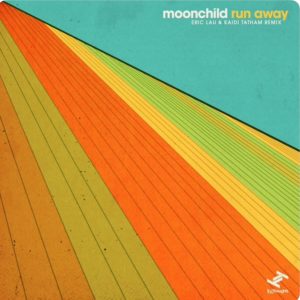
In their remix of “Run Away”, Eric Lau and Kaidi Tatham blend the laidback ’80s electronica of the original with their unique character and rhythm to draw out a carefree groove that scintillates with plucky guitar licks. A talented beat-maker, Lau crafted the track by laying down drums to punctuate accents and details in the vocals. Softening the vocal hues, he calls on Tatham for his harmonic textures which perfectly complement Navran’s voice. Lau has worked with legends like DJ Jazzy Jeff, De La Soul and James Poyser as well as performing with Robert Glasper and Erykah Badu. Tatham is a member of the Bugz In The Attic collective and his body of work includes musical contributions for Amy Winehouse, Slum Village, Mulatu Astatke, Soul II Soul.
If you like Moonchild as much as I do you can find them on thisismoonchild.com
Moonchild is touring with The Internet get your tickets now!!
Moonchild Bio provided by Bandcamp.com
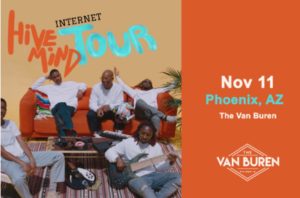
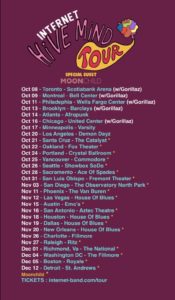
Tickets: thisismoonchild.com/tour
Oct 21 – Santa Cruz
Oct 22 – Oakland
Oct 24 – Portland
Oct 25 – Vancouver
Oct 26 – Seattle
Oct 28 – Sacramento
Oct 31 – San Luis Obispo
Nov 3 – San Diego
Nov 11 – Phoenix
Nov 12 – Las Vegas
Nov 15 – Austin
Nov 16 – San Antonio
Nov 18 – Houston
Nov 19 – Dallas
Nov 20 – New Orleans
Nov 26 – Charlotte **just added
Nov 27 – Raleigh
Dec 1 – Richmond
Dec 4 – Washington DC
Dec 5 – Boston
Dec 12 – Detroit
Tints by Anderson .Paak
Here’s the new music video to Anderson .Paak’s song, Tints featuring Kendrick Lamar!
Eminem: Killshot
After nearly two weeks, Eminem finally responds to Machine Gun Kelly with Killshot, check it out!
Eminem: Fall
Check out Eminem’s newest song, Fall, part of the soundtrack of the upcoming Venom movie!
Childish Gambino: Feels Like Summer
A little late but here’s Childish Gambino’s latest music video, Feels Like Summer.
Gorillaz: The Now Now Review
After only a year, our favorite virtual band is back with new music. Ladies and gentlemen, I present to you, The Now Now.
This latest album is a definite change from the previous album Humanz, but that’s not to say it’s a bad thing. With the previous album having a lot of collaborations, this one mainly consist of Damon Albarn (voice of 2-D) singing on all the tracks save for Hollywood, Lake Zurich, and Humility.
I for one enjoyed this album a lot. While it doesn’t have as many songs as I wanted it to, it still doesn’t take away from album itself. In my opinion I’ve never heard a bad Gorillaz album. The theme of this album seems interesting as well. It seems to be about sticking together in troubled times but also the character 2-D enjoying his life while Murdoc is locked away in jail, as seen in the music video, Humility.
Apart from Humility, the other songs that I definitely have on repeat are Sorcererz, Fire Flies, Souk Eye, and Hollywood.
I’m conclusion, is this album worth buying and or listening to? Absolutely! If you haven’t heard it now, go listen to them, I give the album 9 out of 10!
The Secret History Of One Of The Most Sampled Albums Of All Time
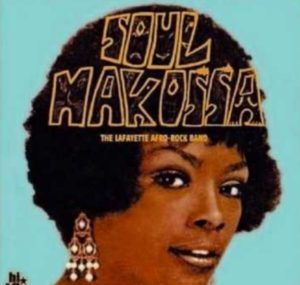
In July, members of Vinyl Me, Please Classics will receive the first official U.S. release — with the original artwork — of Lafayette Afro-Rock Band’s Soul Makossa, the debut LP from a cracking U.S. funk band that recorded in France and which provided the backbone for much of early rap music. You can can sign up here.
In 1971, the Bobby Boyd Congress fled Long Island due to funk saturation and fear of death. Both were ineluctable realities that could torment any band aspiring to breakthrough in a New York City convulsing with kinetic break beats, opiate addiction, and the casket lottery of the Vietnam draft. So in the tradition of Josephine Baker and James Baldwin, the band decamped for the city of lights.
No one would mistake the Paris of 1971 for a funk mecca. The suave chansons of Jacques Brel and Serge Gainsbourg’s Lolita-lite baroque pop ruled the airwaves as a Gaullist government attempted to erase the lingering specter of 1968’s near-revolution. The change offered the Roosevelt natives the potential for adventure and opportunities ostensibly occluded in a five boroughs world controlled by funk linchpins, Mandrill, the Fatback Band and B.T. Express.
Things didn’t go as planned. Despite his prodigious gifts as a singer, songwriter, saxophone player and bandleader, Bobby Boyd failed to even become the most famous musician named Bobby Boyd (a Texan country songwriter outranks him). His eponymous 1971 debut later became a holy grail of rare groove fetching up to 1500 Euro’s a copy, but the limited edition run of 300 vanished into the Gauloises-wreathed attics of the left bank. Swiftly reconsidering his decision to expatriate, Boyd returned to American anonymity, leaving his band to parse the New Wave wanderings of a post-Weekend world.
The Americans in Paris established their habitué inside the clubs of the Barbes district, a swath of the 18th arrondissement largely populated by North African immigrants. Amidst the avenues of vegetable stalls and halal butchers, kebab stands and African hair salons, the New Yorkers conjured a vulcanized funk, durable and lubricious, adopting the ras el hanout of the neighborhood to their loose-limbed American swing. Discovery was imminent and arrived via a peripatetic Parisian harmonica player who had once attempted to teach French to a pre-adolescent Stevie Wonder under the orders of Berry Gordy.
His name was Pierre Jaubert, a raconteur whose storied resume almost reads like a one-man “Losing My Edge.” The stories bequeathed seem almost too surreal to be true. He was in Detroit in 1962, teaching Lil Stevie how to sing in French and turning down Gordy’s offer to run Motown’s international operations (Pierre hated the idea of being in an office). He met Smokey Robinson and watched the sorcery of Motown’s in-house Merlin, Norman Whitfield, brewing masterpieces inside that converted house studio, Hitsville USA, with low-hanging ceilings and a grand piano. He rubbed shoulders with Marvin Gaye and flirted with a teenaged Diana Ross, before “settling” for Mary Wells.
He was in Chicago to witness the birth of Windy City soul, catching the nascent sessions of Curtis Mayfield and Phil Upchurch and the Dells. If you listen close on some of those Kennedy-era spells, he once claimed you could hear him breathing. Then sometime shortly before the Age of Aquarius took hold, he returned to Paris because in America, everything seemed to be at “right angles.”
The story somehow only gets more random. In Paris, Jaubert doubles down on his jazz roots, laying down tracks with Charlie Mingus and Archie Shepp. He doesn’t merely dabble in the blues, he commences sessions with John Lee Hooker and Memphis Slim. On a return sojourn to America, a chance encounter with a Bay Area packing clerk named John Fogerty leads to the discovery of Creedence Clearwater Revival.
“The subsequent alchemy would yield a grease fire funk classic that became one of the most sampled albums in hip-hop history.”
“He told me, oh I have a group,” Jaubert recalled in 2011. “I heard his tape. It was very good. So when I spoke to Saul [Zaentz, the owner], I said, ‘Hey, the guy who is working for you, you should record him.’ So that is how Creedence Clearwater Revival ended up on Fantasy records.”
As a reward for ushering “Proud Mary” into the world, Jaubert successfully finessed the rights for a friend to release CCR’s music in France. That victory led to Jaubert being given free rein to indulge any sonic whim. This is when the Lafayette Afro-Rock Band finally glides into the mise en scene.
In the wake of their front man’s flight, the one-time Congress rebranded themselves as “Ice,” an alias they were still using when Jaubert received a phone call from a friend. Said friend had a studio and recognized Ice’s talent, but didn’t know what to do with an American soul-funk crew. So he called up his friend Jaubert, the house producer at Parisound Studios. In Jaubert’s 2011 recollection, the call went a little something like this: “Look, I have these guys from New York. Please take these guys. I don’t want to see them again. They want money for their music, please take care of that. Bye Bye.”
Money was a practical consideration almost entirely absent from the subsequent proceedings. Their initial foray with Jaubert, Each Man Makes His Own Destiny, flopped miserably. The music was fine, but it was commercial kryptonite. If not for a chance conversation with the Cameroonian afro-funk legend, Mani Dibango, it’s possible that it would’ve been the last anyone ever heard of the transplanted New Yorkers. But Dibango insisted that Jaubert should continue working with them and try to score them a hit. First, there was the matter of their name.
“I could not call it Ice, because first legally you cannot register the name Ice. There are many names like this that you cannot record under or register commercially. That is why you have so many variations. Ice Cube, Ice T, everybody is using Ice,” Jaubert said in 2011. “I thought, I’ll make a name that is easy to register to record under. In France we use complicated names, so the Lafayette Afro-Rock band, that name was kind of complicated. So I invented that and registered the name immediately. It was a group that did not exist. There was no such group as [The] Lafayette Afro-Rock Band. I had to invent them.”
Inspired by what he’d learned from Gordy, Jaubert conceived the Lafayette players as a rotating ensemble that could double as the Parisound house band — the Gallic equivalent of Motown’s Funk Brothers. Jaubert owned the name and swapped in a fungible cast of guest players, but the core trinity was comprised of Frank Abel, the keyboard player and pianist; Michael McEwan, the electric guitar player; and Arthur Young, who handled drums and percussion. The subsequent alchemy would yield a grease fire funk classic that became one of the most sampled albums in hip-hop history.




